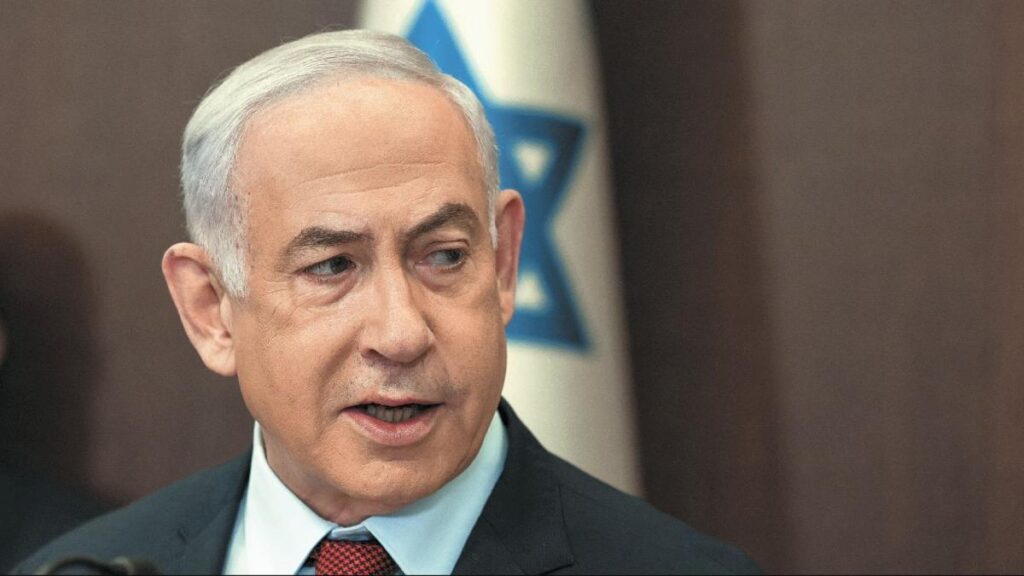Background on Benjamin Netanyahu and His Role
Benjamin Netanyahu, the current Prime Minister of Israel, has been in office since 2009. He is a seasoned politician with extensive experience, having previously served as Prime Minister from 1996 to 1999. Known for his strong stance on national security, Netanyahu has been at the forefront of Israel’s political landscape for decades. His recent decisions reflect his commitment to ensuring the safety and well-being of Israeli citizens.
Netanyahu’s Call for Military Action in Gaza
On Tuesday, Netanyahu emphasized the necessity for Israel to completely defeat Hamás in Gaza to secure the release of hostages. He convened a restricted security cabinet meeting to prepare for the next phase of war in the Palestinian territory.
“It is essential to completely defeat the enemy in Gaza, free all our hostages, and ensure that Gaza no longer poses a threat to Israel,” Netanyahu stated during a military base visit.
According to Israeli media, citing anonymous officials, Netanyahu aims for the Israeli military to conquer the entire Gaza Strip. This decision, if implemented, would mark a significant shift in military strategy, as Israel has refrained from targeting certain areas due to concerns about hostage safety.
Cabinet Decisions and Potential Opposition
Several cabinet members confirmed that Netanyahu decided to expand the fighting into areas where hostages might be held. However, there are speculations about potential opposition from the Chief of Staff, Lieutenant General Eyal Zamir. The Prime Minister’s office assured that the military would enforce any decisions made.
Media outlets, including Maariv, suggest that this decision implies the military will start operating in areas previously avoided due to hostage safety concerns. These regions include refugee camps in central Gaza.
Stalled Negotiations and International Pressure
The United Nations is set to hold a session focused on Israeli hostages in Gaza, as demanded by Israel. The Israeli government faces increasing pressure to find a resolution to the ongoing conflict with Hamás, which began on October 7, 2023.
Netanyahu faces dual pressure: domestically, due to the situation of 49 captives taken on October 7, with 27 reported dead by the military; and internationally, because of the suffering of over two million Palestinians living in Gaza amidst widespread famine, according to the UN.
“The ball is in Israel’s and the US’s court,” stated Hamás political leader Hosam Badran, expressing the group’s willingness to cease hostilities and end the famine. Mediators continue contacting Hamás, but no new proposals or progress in resuming negotiations have been reported.
Humanitarian Situation and Goods Entry
On Tuesday morning, the Coordinating Administration of Civil Affairs (COGAT), under Israel’s Defense Ministry, partially reauthorized private goods entry into Gaza. This move aims to increase humanitarian aid while reducing dependency on UN and international organization assistance.
A limited number of local merchants will now be able to send basic food items, baby food, fruits, vegetables, and hygiene products to Gaza. COGAT aims to prevent Hamás involvement in aid distribution and supply.
Israel imposed a complete blockade on Gaza starting March 2, 2023, partially lifting it in May to allow minimal aid entry, deemed insufficient by the UN. COGAT reported over 300 aid trucks entered Gaza on Monday, while the UN estimates at least double that amount is needed.
The October 7, 2023 attack resulted in 1,219 deaths in Israel, mostly civilians. Israel’s response killed at least 61,020 people in Gaza, mostly civilians, according to the territory’s Health Ministry. The UN considers these figures reliable.
Key Questions and Answers
- Who is Benjamin Netanyahu, and why is he relevant? Benjamin Netanyahu is the Prime Minister of Israel, known for his strong stance on national security. His recent decisions reflect his commitment to ensuring Israeli citizens’ safety.
- What is Netanyahu’s call for regarding Gaza? Netanyahu calls for a full military conquest of Gaza to secure the release of Israeli hostages held by Hamás.
- Why is there international pressure on Netanyahu? The dual pressures on Netanyahu stem from domestic concerns about 49 captives and international worries about the humanitarian crisis in Gaza, affecting over two million Palestinians.
- What is the current humanitarian situation in Gaza? The situation in Gaza remains dire, with widespread famine and limited access to essential goods. Despite partial lifting of the blockade, the UN estimates that more aid is needed.






